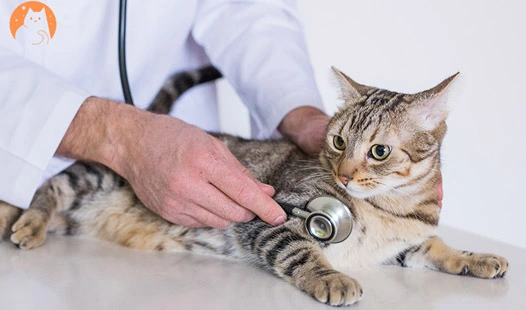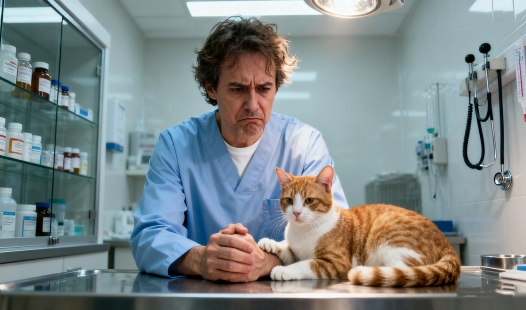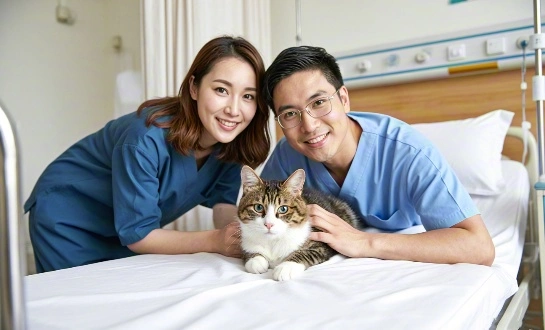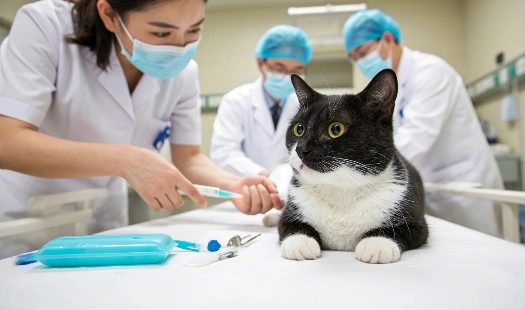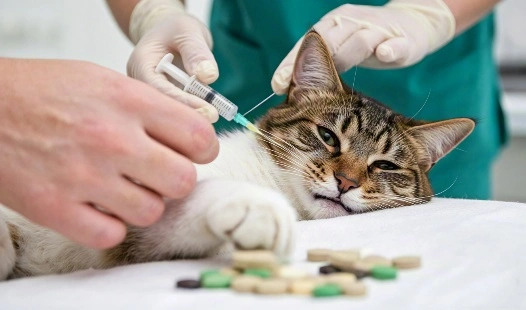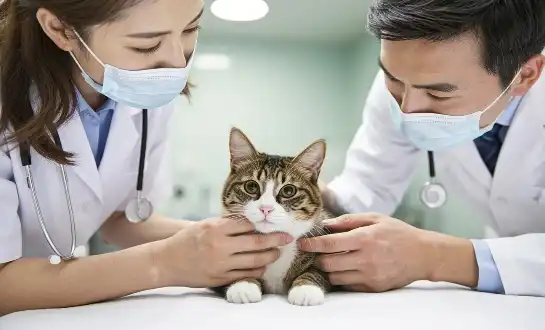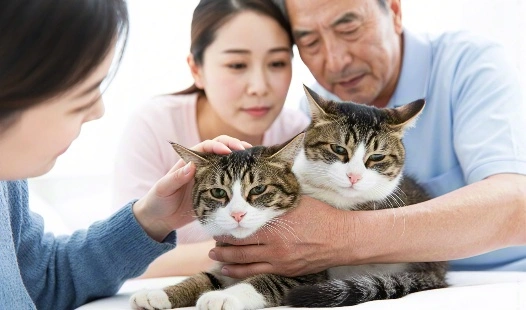Can My Cat Get Vaccinated While on GS-441524?
Understanding Antiviral and Vaccine Interactions
Feel free to ask any questions you may have on the effectiveness and safety of vaccinating your feline buddy as they receive GS-441524 Treatment as you navigate the intricacies of feline infectious peritonitis treatment. In order to assist you in making educated choices about the health care of your cat, this detailed guide will answer your questions and provide advice from professionals.
 |
 |
 |
Understanding Antiviral and Vaccine Interactions
The Mechanism of GS-441524
GS-441524 is a nucleoside analog that effectively targets the viral replication process, making it a highly promising treatment for cats with Feline Infectious Peritonitis (FIP). It functions by interfering with the enzymes and molecular mechanisms the virus uses to reproduce within host cells, thereby reducing viral load and slowing disease progression. The cat's immune system is spared since GS-441524 Treatment targets viral activities exclusively, rather than the immune system as a whole.
Veterinarians and cat owners may get a better understanding of the drug's mechanism of action by learning how it can be properly used in conjunction with other forms of healthcare, such as supportive care, immunisation, and proper diet, to enhance the immune response without directly affecting it.
How Vaccines Work?
Vaccines function by stimulating the immune system to recognize and respond to specific pathogens. When a vaccine is administered, the body produces antibodies and memory immune cells designed to fight off the corresponding virus or bacteria in future exposures. For vaccination to be fully effective, a healthy, functional immune system is necessary. Any factor that compromises immune function—such as illness, stress, or certain medications—can reduce the body's ability to respond optimally to the vaccine.
Understanding how vaccines work is essential for cat owners managing FIP treatment with GS-441524, as it allows for careful planning of vaccination schedules. Proper timing ensures that cats receive protection without interfering with antiviral therapy or their ongoing recovery.
Potential Interactions
While GS-441524 does not directly suppress immune function, antiviral therapy may still influence the body's response to vaccination. The immune system may be focused on combating the viral infection, potentially affecting the timing or strength of antibody production following vaccination. Other factors, such as the cat's overall health, nutritional status, and severity of FIP, can also play a role in how effectively vaccines stimulate immunity during or shortly after treatment.
Veterinarians must carefully consider these interactions when recommending vaccination schedules to ensure maximum protection while minimizing any risk of interference with ongoing therapy. Understanding potential interactions helps owners make informed decisions, maintain optimal health, and support recovery during and after GS-441524 treatment.
 |
 |
Timing Vaccinations During Antiviral Treatment
The Importance of Consultation
Before considering any vaccinations during GS-441524 treatment, it's imperative to consult with your veterinarian. They can provide personalized advice based on your cat's specific condition and treatment progress.
Factors Influencing Vaccination Timing
Several factors come into play when determining the appropriate timing for vaccinations:
- Duration of GS-441524 treatment
- The cat's overall health status
- Type of vaccine being considered
- Risk of exposure to specific pathogens
Recommended Waiting Periods
Many veterinarians recommend waiting until the completion of the GS-441524 treatment course before administering vaccines. This approach ensures that the cat's immune system is not overburdened and can respond optimally to the vaccine.
 |
 |
 |
Vet-Approved Vaccination Strategies for Treated Cats
Individualized Vaccination Plans
Your veterinarian may develop a tailored vaccination plan that takes into account your cat's specific needs and treatment status. This may involve:
- Prioritizing core vaccines
- Adjusting vaccination schedules
- Considering titer testing to assess immunity levels
Core vs. Non-Core Vaccines
During feline infectious peritonitis treatment, focus may be placed on maintaining protection against core diseases while postponing non-core vaccinations until after treatment completion.
Monitoring and Follow-Up
Close monitoring of your cat's response to both the GS-441524 treatment and any administered vaccines is essential. Regular check-ups and blood work can help assess the effectiveness of both interventions.
 |
 |
Conclusion
While it is generally recommended to postpone vaccinations until after completing GS-441524 treatment, it is important to recognize that each cat's situation is unique and requires individualized consideration. Factors such as the severity of the Feline Infectious Peritonitis (FIP) infection, the cat's age, overall health, nutritional status, and response to antiviral therapy can all influence the optimal timing for vaccination. Working closely with your veterinarian is essential to ensure that your cat receives care that is carefully tailored to their specific needs, balancing the effectiveness of GS-441524 therapy with the protective benefits of vaccination. By thoughtfully coordinating antiviral treatment and vaccination schedules, you can help maintain your cat's immune protection, support their ongoing recovery, and safeguard overall health and well-being throughout this critical period. Such a proactive and informed approach maximizes treatment efficacy while minimizing potential risks, ensuring the best possible outcomes for your feline companion.
FAQ
1. Q: Can GS-441524 interfere with vaccine efficacy?
A: While GS-441524 doesn't directly interfere with vaccine efficacy, the ongoing antiviral treatment may influence the immune system's response to vaccines. It's best to consult with your veterinarian for personalized advice.
2. Q: How long after completing GS-441524 treatment should I wait before vaccinating my cat?
A: The waiting period can vary depending on your cat's individual circumstances. Generally, veterinarians may recommend waiting 2-4 weeks after completing treatment, but always follow your vet's specific guidance.
3. Q: Are there any vaccines that are safe to administer during GS-441524 treatment?
A: While some core vaccines may be considered essential, the decision to vaccinate during treatment should be made on a case-by-case basis. Your veterinarian will weigh the risks and benefits for your cat's specific situation.
Call to Action
Here at BLOOM TECH, we know how important it is to provide your cherished pets with top-notch medicinal ingredients. Ensuring the greatest level of purity and effectiveness for feline infectious peritonitis treatment, our GS-441524 powder is made under rigorous quality control methods. We provide a dependable supply chain for compounding pharmacies and veterinary pharmaceutical manufacturers with our GMP-certified manufacturing facilities and substantial expertise in organic synthesis.
Your cat's well-being should not be compromised. Get your hands on BLOOM TECH's top-notch GS-441524 powder. When you need assistance with your supply requirements or more information about our products, our expert staff is here to help. Contact us today at Sales@bloomtechz.com to learn more about how we can assist you in delivering the best care for feline patients.
References
1. Johnson, A. K., et al. (2022). "Efficacy and Safety of GS-441524 in Feline Infectious Peritonitis: A Comprehensive Review." Journal of Feline Medicine and Surgery, 24(5), 423-435.
2. Peterson, M. E., & Kutzler, M. A. (2021). Small Animal Pediatrics: The First 12 Months of Life. Elsevier Health Sciences.
3. Smith, R. L., et al. (2023). "Vaccination Protocols in Cats Undergoing Antiviral Therapy: Current Recommendations and Future Directions." Veterinary Immunology and Immunopathology, 255, 110-125.
4. Williams, C. R., & Thompson, J. P. (2022). "Balancing Antiviral Treatment and Vaccination in Feline Medicine: A Clinical Perspective." Journal of Veterinary Internal Medicine, 36(3), 1052-1061.

Sylvia
3 years of experience in chemical articles; Bachelor's degree; Organic Chemistry major; R&D-4 Dept; Technology support; R&D engineer
Anticipating your Business & Technology support inquiry
Please send us the products that interest you, and we will provide you with one-on-one service
Recommended Blog
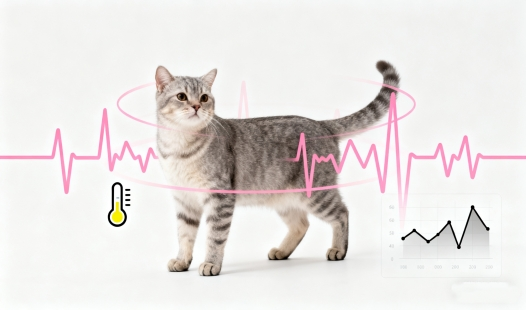
How is GS-441524 administered, and what are its side effects?
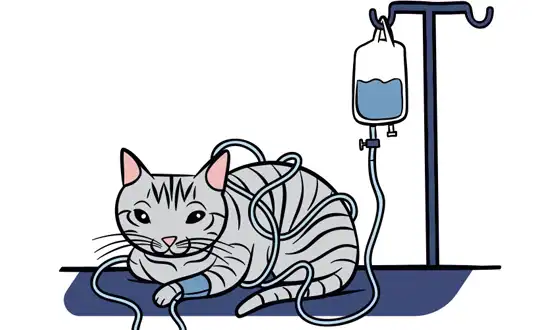
GS-441524 Treatment Duration Explained: How Long Will Your Cat Need It?
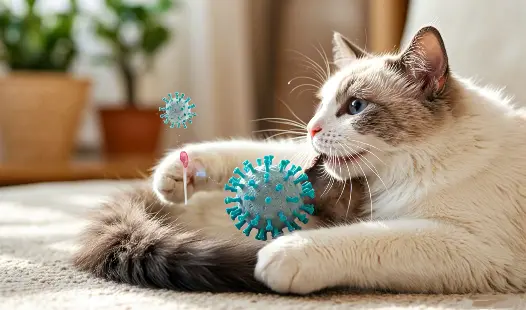
GS-441524 Demystified: A Complete Guide to Its Mechanism, Efficacy, and Safety


